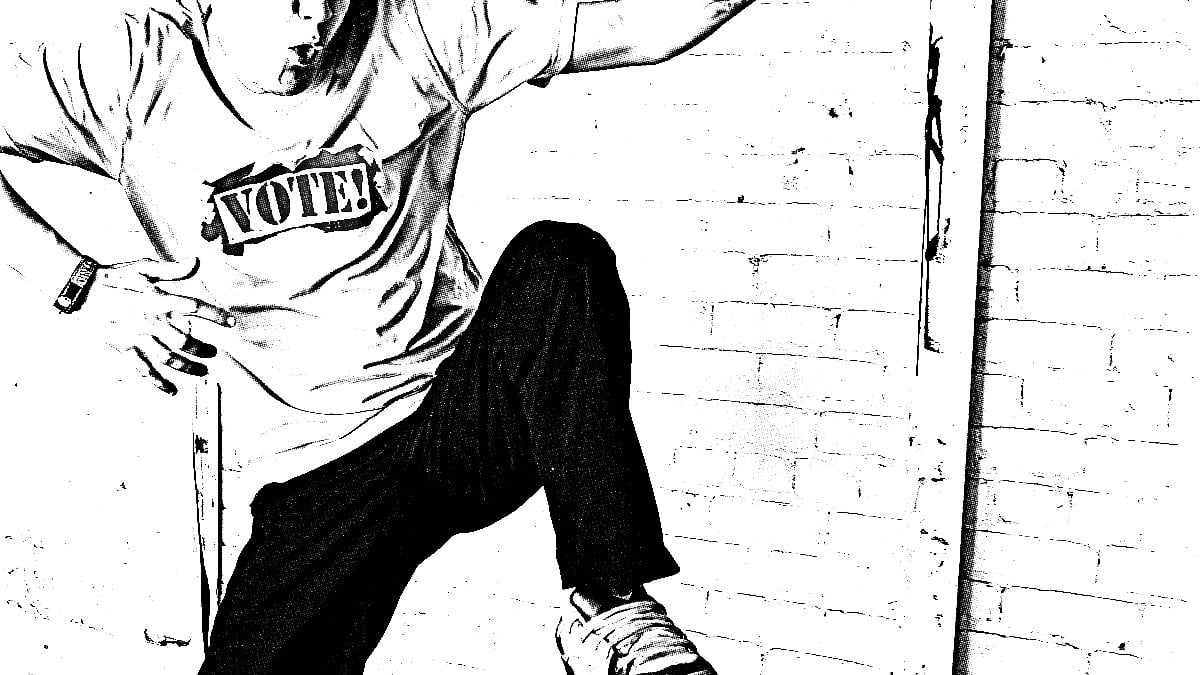
“What a time to be alive,” he groaned.
About a decade ago, a friend and I talked about how the world was in turmoil and disturbingly uncertain. I remember telling him my theory that the cause of almost all modern conflict is resistance to change. Humans are progressing and becoming more enlightened, for the most part, and the status quo doesn’t approve. A concerted and institutional effort to stop this change only gets more desperate. After all, change is inevitable — it’s happening whether anyone wants it, which is ultimately an optimistic view.
But, as I told my friend, it will get a lot worse before it gets better. So we sighed and shook our heads in grudging anticipation for the tough times ahead. But we had no idea it would get to this.
It’s not easy to write through democracy in crisis. ‘The American Experiment,’ once presented with holy reverence in high school civics classes, may not survive the strain of 250 years. What seemed hyperbolic and the province of chicken littles is now a rising possibility. It’s scary out there. And I find it unfathomable that this is acceptable to others who also sat through those civics classes. Some of them — elected officials, even — are cheering on democracy’s potential collapse.
How did we get here?
Sean Illing is the host of Vox Conversations. Within that weekly podcast, Sean launched a monthly series called The Philosophers. Each episode focuses on different philosophers and how their teachings are relevant today. And the installment on philosopher Hannah Arendt, author of 1973’s The Origins of Totalitarianism, is an eye-opener. The podcast isn’t an easy listen — not because it’s dense but because of how Arendt’s findings apply to our situation. I found the conversation illuminating, and though it didn’t add hope to my day, it brought some new perspectives.
The perceived helplessness is stifling, too. I’m a massive advocate of voting — if you saw me DJ close to the 2004 and 2008 elections, I was probably wearing a t-shirt with “VOTE!” written across my chest. But the right to vote, the bedrock of democracy, is increasingly compromised. And then there’s the fatigue of seeing too many elected officials not sounding the alarm as they should. In her fantastic Lorem Ipsum newsletter, Margot Boyer-Dry linked to this cartoon, accurately summing up the feeling in the air.

But I think voting is still the most important action, in concert with other forms of activism, support, and donation. The guiding principle is to do the opposite of what the knuckleheads want. And they don’t want us to vote. The evidence is there. They want us to feel frustrated and powerless. They want us to ignore local and midterm elections and only care about presidential politics. And they want us to vote for third-party candidates and to believe those votes count.
The fact is that our political system is based on what’s called ‘first-past-the-post’ voting. Intrinsically, this creates a two-party system (even independents like Sanders have to align themselves with one of two parties), and voting outside of those, at best, does nothing but provide a limited sense of personal satisfaction. CGP Grey has a great video on first-past-the-post voting and how easily it can lead to undesirable outcomes.

Look, I’m not saying this is a great system. Far from it! If I had my way, there would be zero political parties in the US or, at the very least, a parliamentarian system. Ranked choice voting is the most probable alternative within the US system, but it’s still a pipe dream on a national level.1If you like the idea of ranked choice voting, the best way to advance the concept is to build support for it in your city or county. Ranked choice voting will need to trickle upward to acceptability.
You might cry that I’m asking you to vote for “the lesser of two evils.” I am, and that’s not a bad thing! That’s the only way to make first-past-the-post voting work for us. We find candidates that are a step in our preferred direction, even if those steps are baby steps. We won’t and don’t have to agree with everything — just those things that are important to us. If we’re consistent in electing ‘baby step’ candidates, those steps get larger and larger as new candidates see how the wind is blowing. The alternative is what we have now: steps backward. And, dismayingly, these backward steps are large steps. For those traditionally trod upon, they’re giant steps.
Speaking of those giant steps backward, here’s Margot Boyer-Dry again, from a recent edition of Lorem Ipsum:
Having moved through the years 2016-2022, this moment is hitting bluntly, mainly because it feels like there’s relatively little to be done from an establishment perspective (again, outside the voting, which we will all do responsibly, if with a degree of dejection). But what does that leave? Everything besides the establishment. I think we’re about to see a lot of guerilla change. Just wait until we all start hosting kids from Florida in our city apartments while they get medical care. Watch the startups normalize mail-order abortion pills. Observe the the Supreme Court’s crumbling in the cultural consciousness. There will be stuff to do; we just have to make it up. Sit tight.
🔗→ see also: Creating Sends a Signal
Leave a Reply